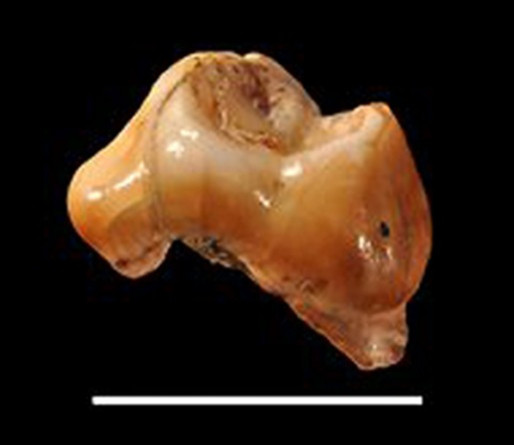Human Teeth Show Early Modern Humans in Europe
45,000 Year Old Specimens Tested With Modern Techniques, Shown to be Older Than Previously Thought

A human tooth fragment unearthed nearly 100 years ago has given anthropologists a new window into the earliest time period of modern human existence in Western Europe. The tooth has been dated, using more modern techniques, to around 43,000 years ago, a time when modern humans were thought to not have yet been established in Europe, the journal Nature reported. That makes the fossils the oldest known modern human remains ever found in that part of the world, and it sheds plenty of new light on what was going on in a period where Neanderthals were also present there. Actual physical evidence of humans from 40,000 years ago is extremely rare, researchers from Oxford and the University College London said in the study printed in Nature.
Until the modern tests were done on the fossils that were found in England and Italy, the oldest modern humans were thought to have been in the area only 34,000 to 36,000 years ago. The tooth fragment therefore "fills a key gap between the earliest dated Aurignacian remains and the earliest human skeletal remains, and demonstrates the wide and rapid dispersal of early modern humans across Europe more than 40 kyr ago," the study reported.
Furthermore, the best evidence researchers had to prove modern humans were in Europe nearly 40,000 years ago came from stone tools. Now they have the human remains to confirm the dates. It's important to know the dates because during this time, the Neanderthals were still around (they later vanished), and the fact they were around the same time as modern humans raises new questions about modern humans' role in the Neanderthals' disappearance. The fragment found in the UK also helped explain how humans could have gone so far north during the last ice age. 42,000 years ago, there was a warm spell that made UK habitable for perhaps 1,000 years.
Let us know in the comments if you think modern humans may have helped wipe out the Neanderthals or if there was some other cause of their demise.
© Copyright IBTimes 2025. All rights reserved.





















